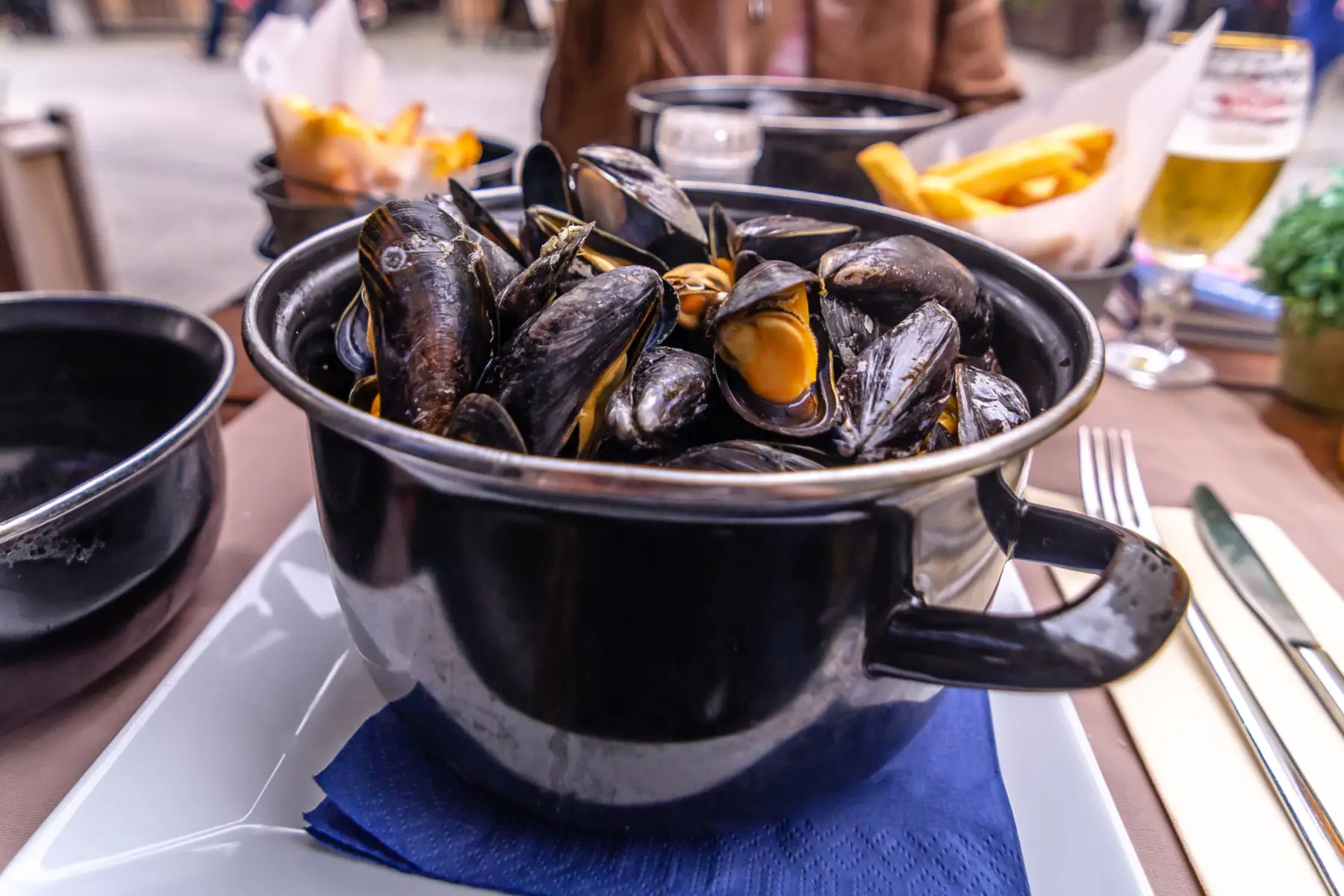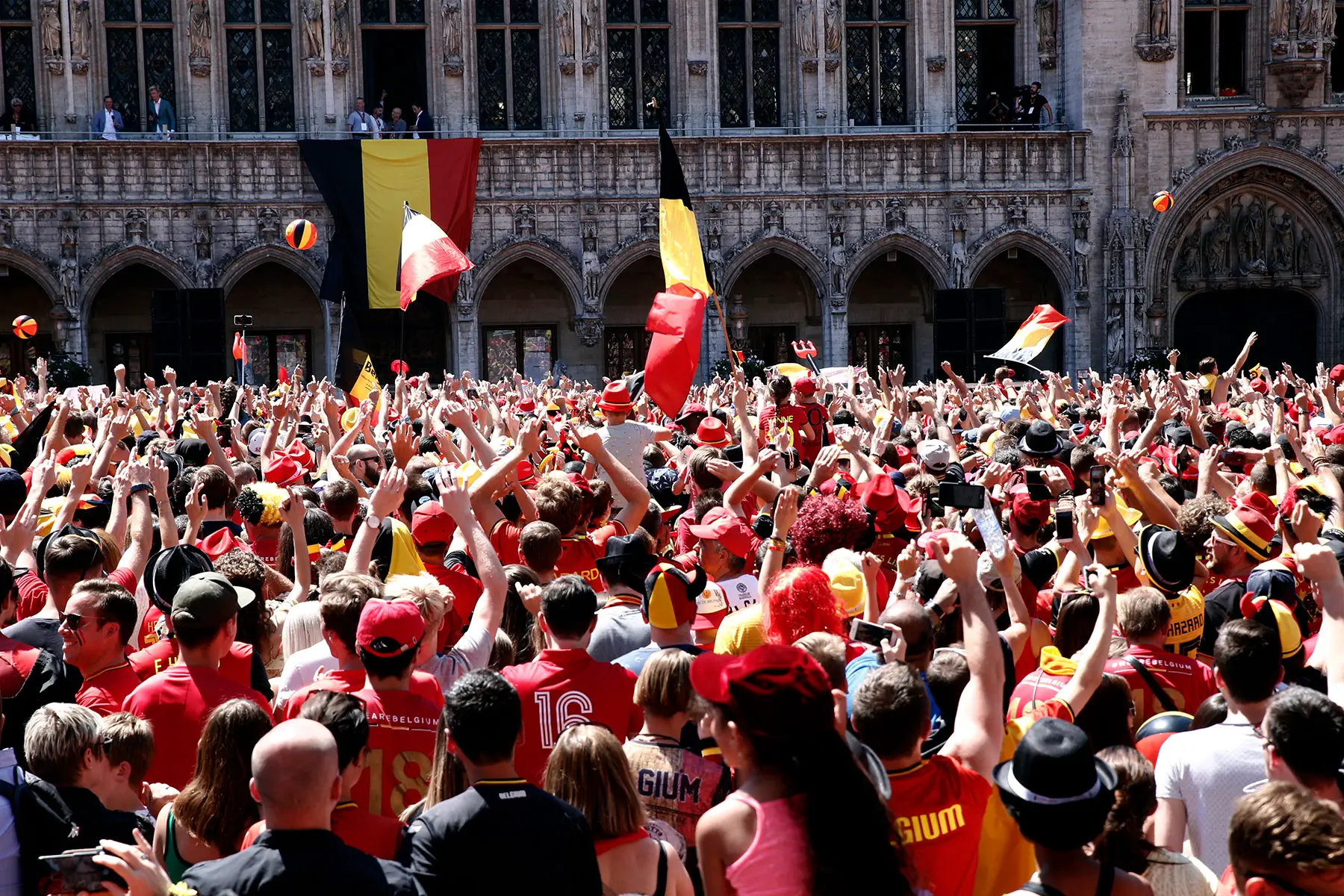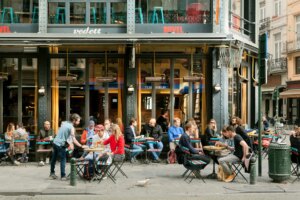It may be a small country in size but Belgium plays large in international scenes and consistently ranks among the top places to live in the world. Whether you’re looking for global services and facilities or edgy culture in Brussels, there’s something to appeal to any kind of expat.
This guide covers all the main topics to consider if you’re thinking of moving to Belgium, including:
- Living in Belgium
- Quality of life in Belgium
- Geography of Belgium
- Main cities in Belgium
- Belgium: interesting facts and figures
- Belgium: key historical dates
- Economy and living standards in Belgium
- Belgian people and society
- Belgian lifestyle and culture
- Food and drink in Belgium
- Politics, government, and administration in Belgium
- Rights and freedoms in Belgium
- Crime and policing in Belgium
- Health, welfare, and social security in Belgium
- Education in Belgium
- Work and business in Belgium
- Environment and climate in Belgium
- Great places to visit in Belgium
- Public holidays in Belgium
- Belgium: myth-busting
- Useful resources
St. John’s International School
Looking for a first-class international education for your child in the Brussels area? St. John's International School has been teaching expat children for over 50 years at their state-of-the-art learning facilities. They offer the complete IB program for students of all ages, ensuring your children have the best start in life whatever their background.
Living in Belgium
Belgium has plenty of positives as a place to live, which explains why so many choose to do so. Nearly 1.5 million of the country’s residents are foreign-born, equating to about 13% of the population.
It also has many top attractions, a friendly and diverse culture, and is the home of multiple European Union (EU) institutions. Beyond this, things that Belgium is famous for include chocolate, beer, fries, the Smurfs, and Tintin.
Quality of life in Belgium
High living standards and excellent public facilities are two of the things that have made Belgium a popular destination for expats. According to the OECD Better Life Index, Belgium offers a high quality of housing, income, employment, and education. On the other hand, there are some concerns about air pollution and water quality, which rank lower than other OECD countries.
Geography of Belgium
With a total area of 30,528 square kilometers, Belgium is the fifth smallest country in the EU. Only Malta, Luxembourg, Cyprus, and Slovenia are smaller. It borders the Netherlands in the north, France in the south and west, Germany and Luxembourg in the east, and the North Sea in the northwest. The Dutch border is complicated in places, with the Belgian village of Baare-Hertog actually sitting in Dutch territory.
Belgium consists of three separate regions: the largely Dutch-speaking Flanders in the north; the largely French-speaking Wallonia in the south; and the bilingual Brussels-Capital Region. It also has three distinct geographical landscapes: the coastal plain in the northwest consisting mainly of sand dunes and dikes; a central plateau with fertile valleys and moors; and the forested hills and caves of the Ardennes uplands.
Main cities in Belgium
Brussels
Belgium’s hugely diverse capital city is home to over 1.2 million inhabitants – more than 10% of the Belgian population, with a further 1.3 million living in the broader metropolitan area. Brussels (Bruxelles in French, Brussel in Dutch) is the economic center of Belgium and one of the main cultural hubs. It has a high concentration of high-skilled workers and entrepreneurs, making it a natural relocation choice for expats.
Antwerp
Antwerp (Antwerpen) is the largest city in the Dutch-speaking Flemish region and Belgium’s second-biggest city. It has one of the world’s largest ports and is home to sizeable anglophone expat populations. Some dub Antwerp one of the world’s coolest cities due to its association with fashion trends and cultural tourism.
Bruges
Often referred to as the Venice of the North, Bruges (Brugge) attracts expats and tourists with its beautiful architecture, historic canals, cultural attractions, and quaint restaurants and cafes. It is located in West Flanders and its historic center has UNESCO World Heritage status.
Liège
Located in the Meuse valley in Wallonia, Liège might not be the region’s biggest city in terms of population but it’s one of the most economically and culturally important. It’s slightly more affordable than the other big cities while still offering a number of desirable neighborhoods, some great festivals, and a vibrant nightlife scene.
Belgium: interesting facts and figures
- Belgium is the second-biggest chocolate exporter in the world. Its chocolate industry generated €2.5 billion in 2020. Only Germany sold more, at nearly €5 billion.
- Antwerp’s diamond district is the biggest in the world, with around 84% of the world’s rough diamonds passing through the district for cutting and polishing.
- The Mannekin Pis, a 60-centimeter bronze statue of a small boy urinating into a fountain in central Brussels, is one of the most well-known symbols of Belgium.
- The Belgian computer scientist Robert Cailliau co-invented the World Wide Web along with his English colleague Tim Berners-Lee. Cailliau was responsible for the first hypertext system which pre-dated the web.
- The Delirium Cafe in Brussels holds the world record for the most different types of beer sold. It set the record of 2004 beers on sale, appropriately enough in the year 2004.
If you’d like some more fascinating facts about Belgian life, read our 30 Belgian facts you didn’t know.
Belgium: key historical dates
Prior to its independence as a state, Belgium has undergone several transformations throughout its history. The territory we now call Belgium was formerly part of the Carolingian Empire and the United Kingdom of the Netherlands. It’s also been split into smaller regional states, sometimes including parts of neighboring countries. The earliest civilizations on Belgian territory date back to at least 100,000 BC. Key dates include:
- 1830 – Independence declared from the Netherlands, followed by ratification of the first Belgian constitution the following year.
- 1847 – Saint Hubertus Royal Galleries, Europe’s oldest shopping center, opens in Brussels.
- 1865 – King Leopold II, who presided over Belgium’s empire in the 20th century, takes to the throne.
- 1885 – Leopold II establishes the Congo Free State in Africa, a precursor to the colonial Belgian Congo which lasted until 1960. Congo was the main part of the Belgian empire, making up 98% of overseas Belgian territory. Around 10 million Congolese natives are believed to have died while being forced to work on Belgian rubber plantations in the late 19th and early 20th centuries.
- 1914 – Invaded by Germany. Belgium, along with Britain, declares war on the Germans at the start of what is now known as World War One.
- 1915 – The Battle of Ypres during WW1 takes place, killing over 100,000.
- 1944–1945 – The Battle of the Bulge is fought in Ardennes in World War Two, a key Allied victory late in the war.
- 1958 – The European Commission, the executive branch of the EU, establishes itself in Brussels.
- 2007–2011 – period of regional political instability during which time Belgium set a world record by going 541 days without a federal government.
- 2018 – NATO establishes its headquarters in Boulevard Leopold III, Brussels.
See our guide to the history of Belgium for more information.
Economy and living standards in Belgium
Belgium has a diverse modern capitalist economy with exports equating to over two-thirds of its annual GDP. As a matter of fact, according to the World Bank, its exports were over US$445 billion in 2019. In terms of GDP per capita, Belgium has an average household annual income of US$51,247. The currency is the euro.
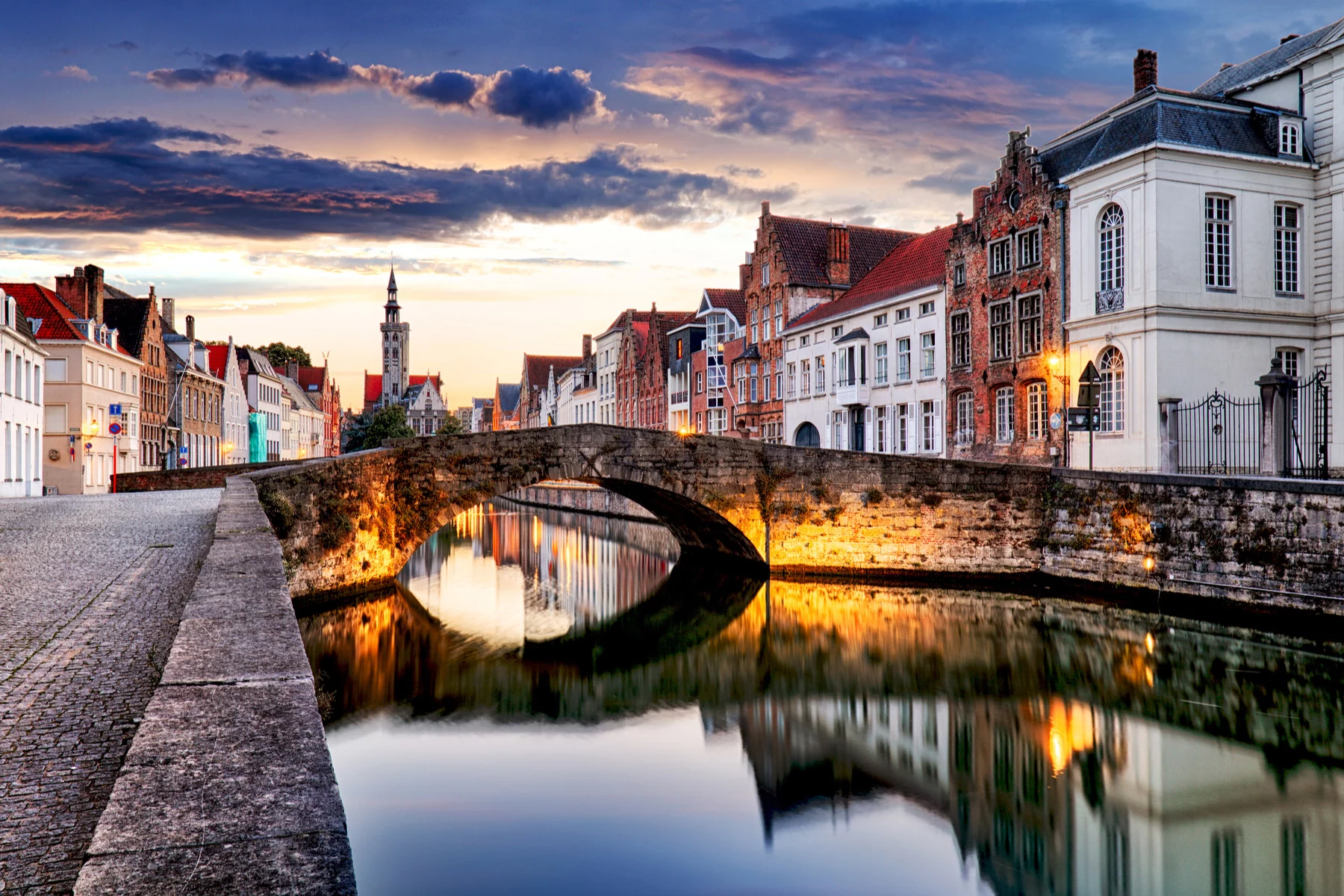
Belgium scores well on the main indicators in the OECD Better Life Index. It ranks above average on income, wealth, wellbeing, civic engagement, employment, housing, and personal security among others. The overall cost of living is around 4% lower than in the neighboring Netherlands, with rents almost 30% lower. Tax rates in Belgium are among the world’s highest.
Despite its economic wealth, nearly 19% of the Belgian population is at risk of poverty, with the situation more severe in the Brussels-Capital Region. This is slightly below the EU average of 21.9%.
Belgian people and society
Belgium is split into three distinct regions with three languages (Dutch-speaking Flanders in the north, French-speaking Wallonia in the south, and a German-speaking enclave in eastern Wallonia). Therefore, it’s unsurprising that Belgian people are very diverse and heterogeneous.
Belgium is a very multicultural country and has many established immigrant communities among its total population of 11.5 million. The largest immigrant populations are French, Dutch, Italian, Romanian, and Moroccan. Approximately 65% of Belgians identify as Christian (54% Catholic), 5% as Muslim, 3% other religions, and 27% no religion or agnostic.
Culture and customs tend to vary across the distinct regions. However, common Belgian traits include politeness, hard work, appreciation for culture, and family values. Equality in terms of class and gender is better than average. The gender pay gap is 5.3%, so Belgium is the fourth-best EU country for pay equality.
Belgian lifestyle and culture
Belgium certainly won’t disappoint on the cultural and entertainment front. Besides impressive museums, a lively theatre scene, and some of the most picturesque historical towns in Europe, Belgium has more castles per kilometer than any other country in the world. There are also a number of colorful festivals, not least the folkloric, UNESCO-recognized Carnaval in Belgium.
Beer fans will be pleased to discover the undeniably large variety of Belgian beers. One of the best places to discover it is Quartier Saint-Boniface in Brussels, a lively neighborhood, teeming with amazing restaurants and bars. In addition, major cities and towns have bars of all types, from trendy lounges to old Flemish hostelries serving an array of the best-tasting and most interesting beers in the world. In fact, Belgian beer is even a religious affair, with Trappist monks having brewed and sold their own beer for centuries.
Belgians are also keen sports enthusiasts, with football, cycling, and tennis among the most participant sports in the country.
Food and drink in Belgium
Belgians take food and drink seriously, and are world-renowned for their beer, chocolate, and Belgian fries (or frites) in particular. Popular national dishes in Belgium include stoofvlees (steak and ale stew), moules frites (mussels and fries), and boulets (Belgian meatballs).
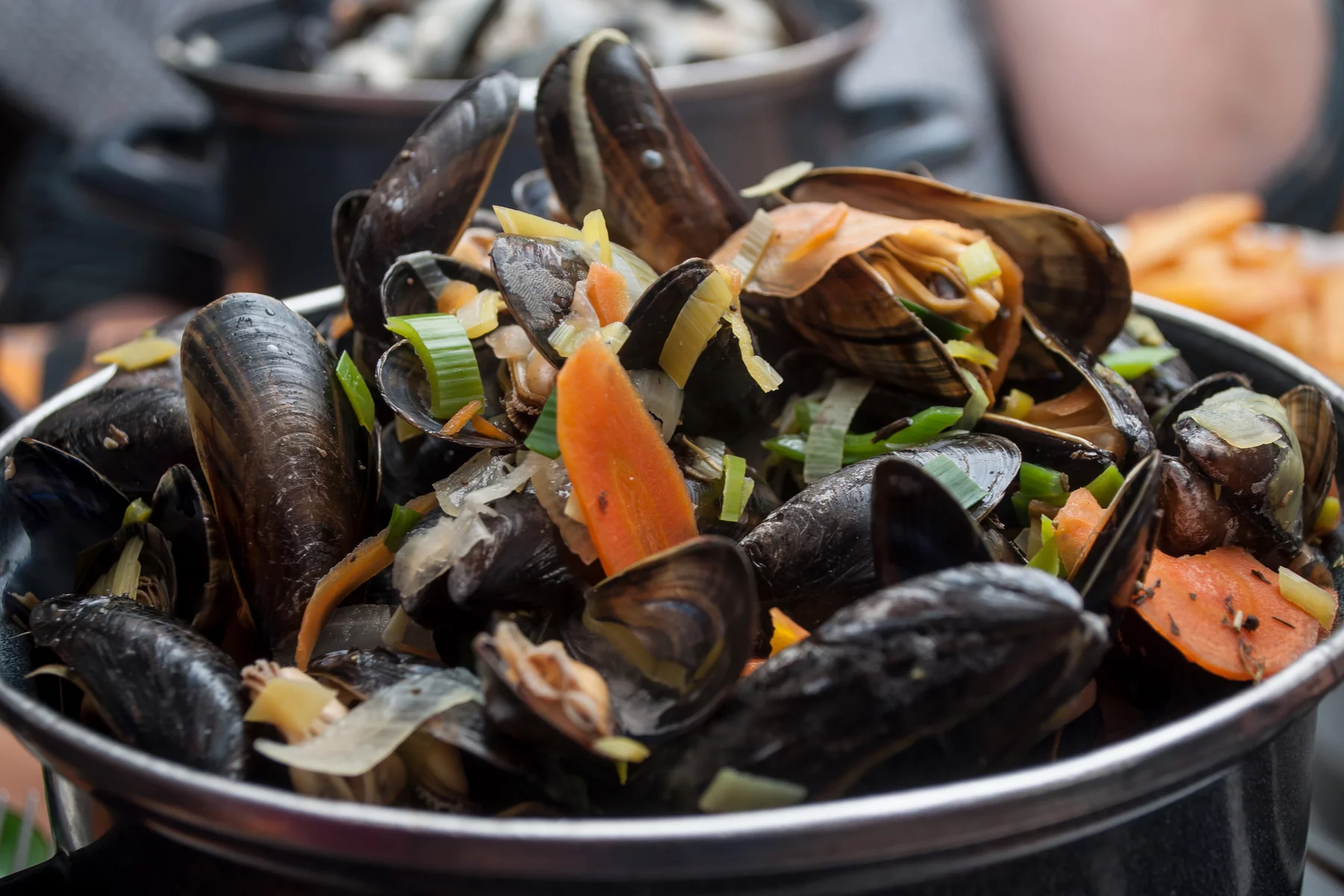
When it comes to eating establishments, Belgium is proud of the choice and quality of its restaurants. In fact, there are 138 Michelin-starred restaurants across the country. Bars and cafes are also commonplace, with around 14,500 open across the country in 2018. Expect to be overwhelmed by the beer selection in many Belgian bars. Some have hundreds, even thousands, of craft brews listed to choose from in thick catalogs.
Belgium also has a vibrant coffee culture in its main cities. Antwerp is one of the world’s largest coffee ports, and Belgium is among the world’s top importers of green coffee beans.
Politics, government, and administration in Belgium
The Belgian political system is a representative constitutional monarchy with the King or Queen as head of state and the Prime Minister as head of government. Executive power is exercised by the government. There are two chambers involved in legislation: the Senate (Dutch: Senaat, French: Senát) and the Chamber of Representatives (Dutch: Kamer van Volksvertegenwoordigers, French: Chambre des représentants).
Federal elections are usually held every four to five years. Election to the Chamber of Representatives is decided by proportional representation. It’s a multi-party system and no party wins an overall majority. Therefore, the Belgian government is based on a coalition of parties.
The main political parties are divided along the linguistic regional communities. Each region has been strongly represented in recent times by Christian Conservative, Labor, and Liberal parties.
Because of the strong regional nature of politics in Belgium, with many powers devolved to the three separate regions, governance in the country can be complex and bureaucratic. In fact, there have been long periods where Belgium has had no federal government. In 2020, it broke its own record for the longest period without an elected government.
However, the chaotic nature of Belgian politics doesn’t put citizens off voting. That’s because voting is compulsory in Belgian elections. This means that Belgium has ranked highest for voter turnout among OECD countries. All Belgian citizens aged 18 and above are eligible to vote.
Rights and freedoms in Belgium
If you live in Belgium, you are unlikely to experience much in the way of infringements on your rights and freedoms. The country is among the world’s most liberal when it comes to personal freedoms, women’s rights, and freedom of sexuality.
Belgium ranks 23rd out of 165 assessed global countries on the 2021 Human Freedom Index. It scores particularly highly on personal safety and security, freedom of expression, and freedom of identity. Slightly lower scores were achieved on economic freedoms such as property rights.
In addition to this, Belgium ranks second on the 2021 Rainbow Europe Index measuring LGBTQ+ friendliness.
Crime and policing in Belgium
Belgium is a country with a fairly low overall number of crimes in comparison to many European and western countries. However, rates of crime appear high on some charts due to the country’s small population.
For instance, Belgium had the highest number of robberies per 100,000 inhabitants according to EU statistics in 2018. Most Belgian neighborhoods are safe by common standards. Petty crimes such as pickpocketing and purse snatching are among the most frequent Belgian crimes.
Both federal and local police operate in Belgium. Local police deal with most day-to-day crime, with federal units concentrating on specialized operations and investigations. There have, however, been concerns in recent years about racial profiling within the police force. The Belgian emergency number for the police is 101.
Health, welfare, and social security in Belgium
There is an excellent standard of healthcare in Belgium. High-quality medical care is widely available, enhanced by large university hospitals. It’s also cheaper than in many European countries. Shorter waiting times mean Belgium is becoming a hotspot for medical tourism from surrounding countries.
Belgium ranks 22nd on the Global Health Security Index, indicating the good quality health of its population. This shows in the country’s life expectancy, which is currently 84.3 for women and 80 for men.
The healthcare system in Belgium consists of both public and private healthcare, with public health insurance covering the majority of state healthcare costs. Health insurance forms part of the social security system in Belgium. Workers make regular payments to cover healthcare, state pensions, unemployment benefit, and a range of other benefits.
Education in Belgium
Parents in Belgium will be pleased to know that the country offers excellent facilities and a high standard of education. Belgium ranked 28th out of 41 OECD countries for education, with 80% of adults having completed upper secondary education. Belgians spend an average of 19.5 years in education, higher than the OECD average.
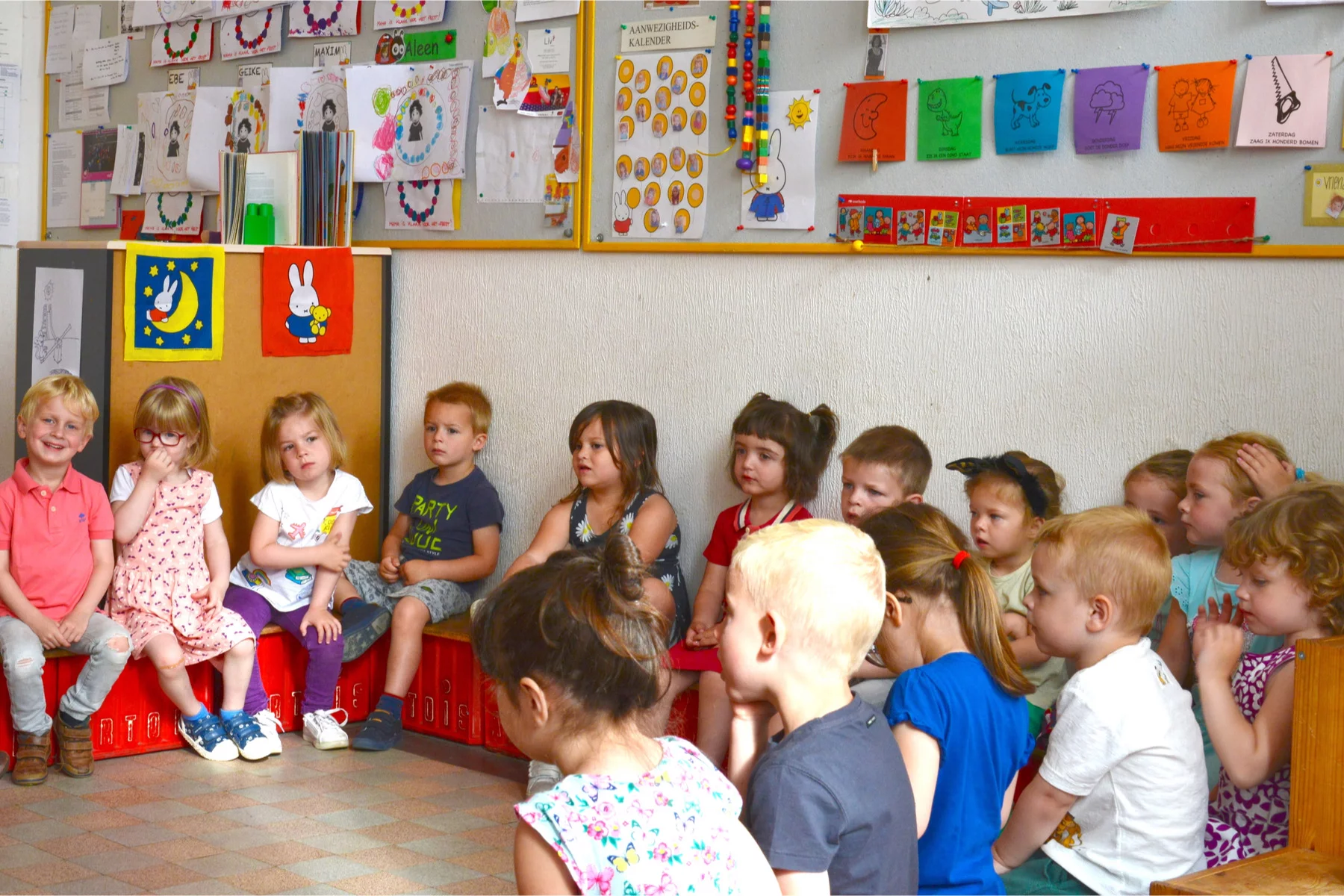
The Belgian education system offers parents a huge choice, including a range of international schools and language schools. Children can attend organized daycare from the age of two before moving onto primary schooling from ages 6–12.
Secondary schooling is compulsory until the age of 18. After this, students can choose to continue their studies at one of the country’s many universities or colleges, including world-renowned institutions such as KUU Leuven or the University of Ghent.
Work and business in Belgium
It’s possible to work in Belgium if you’re from an EU/EFTA country or have the necessary Belgian work visa. With many global companies and large international institutions based in the country, Belgium is a good place to find a job and attracts many high-skilled workers.
The unemployment rate in Belgium rose in 2021 to 6.6%. This is below the overall EU unemployment level of 6.2% and eurozone unemployment of 8.4%.
Belgium has strong service and manufacturing sectors. Over three-quarters of Belgians work in services, including legal, financial, media, and tourism. The petrochemical industry is also sizeable. Belgium also has one of the biggest diamond industries in the world.
Work culture tends to be quite formal, although this can vary across regions and industries. The legal working week in Belgium is 38 hours. Workers can work additional hours overtime if agreed.
It’s also possible to start your own business in Belgium. Self-employment and freelancing is common, especially in cities such as Brussels and Antwerp which have a culture of entrepreneurialism.
Environment and climate in Belgium
One of the biggest gripes about Belgium is the climate. An old Belgian joke says that the country has great weather – about 20 times a day. There is a significant amount of rain across the country all year round; however, it tends to be overstated. Belgium currently ranks as low as 100th on a list of countries according to annual rainfall. European countries with more rain include Iceland, Switzerland, Albania, Norway, the United Kingdom, Ireland, France, and Portugal.
Belgium has a cool climate influenced by the North Sea and the Atlantic Ocean. Average temperatures are around 3.5 degrees celsius in winter and 18.5 degrees in summer, with highs of around 23 degrees.
Belgium is one of the most urbanized countries in the world, with just over 98% of the population living in urban areas. Although heavily industrialized, Belgium performs well on environmentalism and sustainability. The country ranks 21st globally on the 2022 Environmental Performance Index and its main cities are rated as good on the Air Quality Index. However, it scores fairly poorly on biodiversity due to urbanization levels. In 2017, it was estimated that around a third of indigenous species were rare, threatened, or extinct.
Great places to visit in Belgium
If you’re moving to Belgium, make sure you check out some of these fascinating days out.
Flanders Fields
These wartime battlefields are a historically important site and a pilgrimage for those with a keen interest in World War One. You can see the preserved trenches and cemeteries in the town of Ieper. These haunting memorials remind visitors of the dreadful loss of life in the last century.
Mons Old Town
This picturesque Walloon town was the European Capital of Culture 2015 and makes for a great day trip. Highlights include the Grand Place and the UNESCO-listed bell tower situated on a hill overlooking the town.
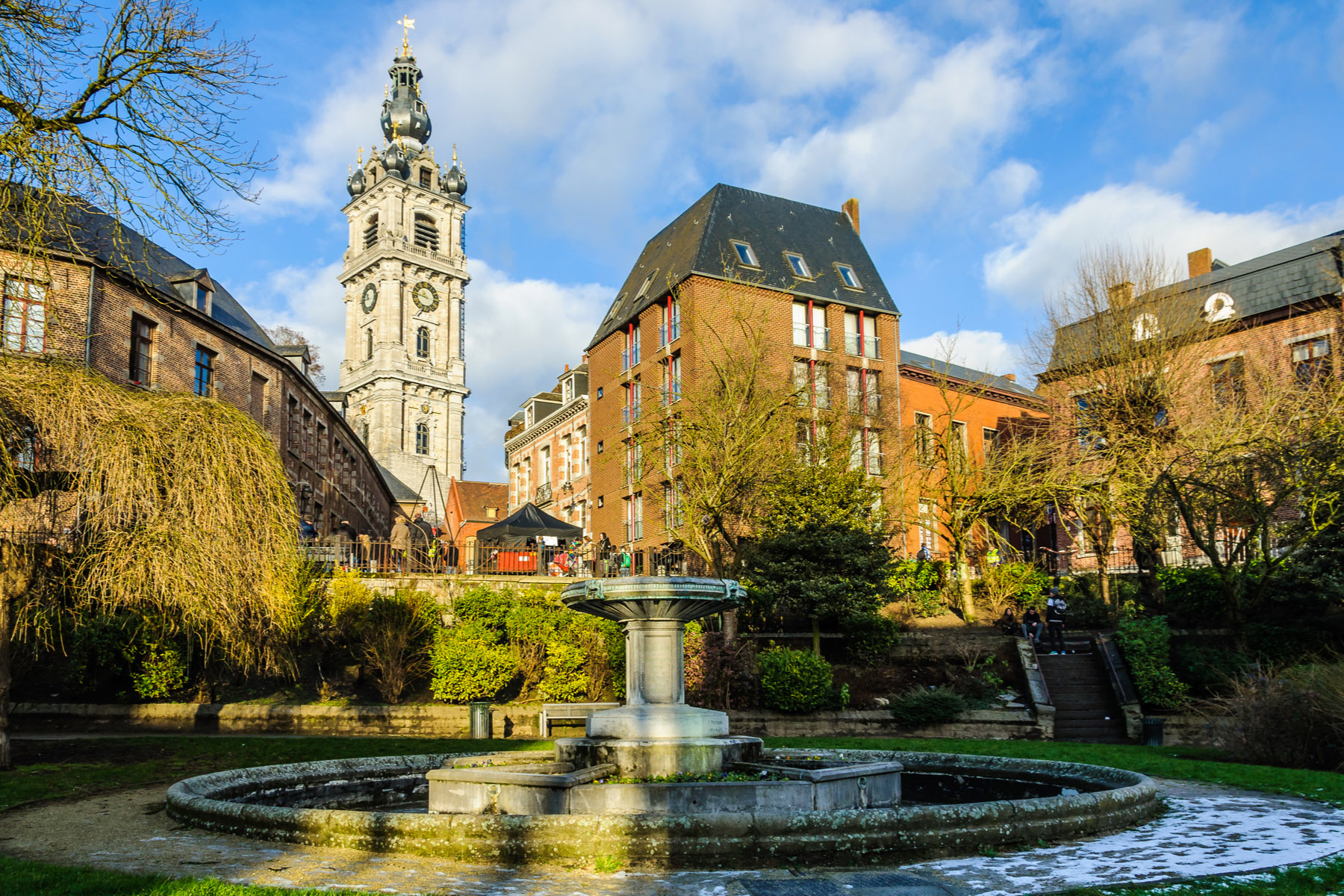
Meuse Valley
Located south of Brussels, the Meuse Valley is a great example of the rural side of Belgium. There is much to do here, including river cruises, forest and clifftop hikes, and excursions to castle and fortress ruins.
Public holidays in Belgium
Belgium has 10 annual public holidays each year. Most are nationwide but some are celebrated only among the language communities.
Some notable Belgian public holidays include:
- 1 May: Labor Day
- 21 July: Belgian National Day
- 11 November: Armistice Day
Belgium: myth-busting
While you’ve been planning your move to Belgium, it’s likely you’ve come across a few stereotypes and misconceptions. These might include:
- Belgium’s political system is messy and disorganized – It’s certainly true that with such a diverse political landscape, it can sometimes take years to form a coalition. In addition, many in the country believe that the political system needs reform. That said, it scores highly on political rights and civil liberties.
- Belgium isn’t a real country – Because Belgium’s borders have changed so much over the years, and there are three communities speaking different languages, there’s a misconception that Belgium isn’t a ‘real country.’ However, Belgium is home to 12 million people, and while they don’t all share a language or political views, it’s a country and nation just like any other.
- Belgium is boring – This small country, known for its political institutions, gets an unfair reputation for being dull. However, there’s so much to do: places to visit, weekend breaks, and some of the most well-known festivals in the world. And that’s before we mention the beer.
Useful resources
- belgium.be – official government website with information on Belgian life and Belgian services


